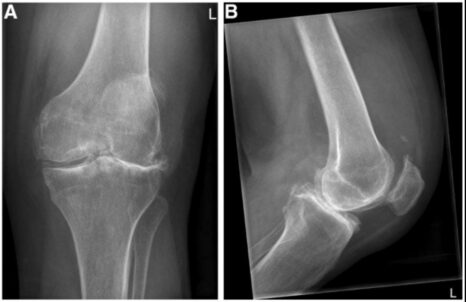Ozempic and arthritis
Could the weight-loss wonder drug reduce the symptoms of arthritis?
You might have heard of Ozempic. Health Minister Wes Streeting kicked off a flurry of reactions when he suggested that the weekly weight-loss injections could be part of a programme to get people back into work. The headlines, of course, belie a more complex policy around healthy lifestyles leading to reduced long-term unemployment issues and reduced pressure on the NHS. Prime Minister Keir Starmer is broadly on board with the idea of using medication like Ozempic to reduce obesity in this country, in an effort to reduce the strain on the health system.
Of course, everyone knows there’s no such thing as a magic bullet, and it’s clear that the government needs to introduce a range of methods to reduce obesity in this country – including taxing foods high in added sugar and saturated fats, improving education at school and in wider society, and encouraging more active lifestyles.
obesity in this country – including taxing foods high in added sugar and saturated fats, improving education at school and in wider society, and encouraging more active lifestyles.
But Ozempic and its ilk are definitely being touted within a new health drive aimed at taking the pressure off the healthcare system.
The list of health issues related to obesity is lengthy: from heart conditions, high cholesterol and liver conditions to diabetes, autoimmune diseases and metabolic problems. Being overweight is also a contributing factor to the debilitating symptoms of arthritis and joint pain.
So, how does this weekly weight-loss injection work?
The active ingredient is semaglutide, which was first approved in 2017 to treat diabetes by reducing blood sugar. It has also been shown to enhance beta cells in the pancreas, which are responsible for producing insulin – the blood-sugar-regulating hormone which is depleted in diabetics.
In larger doses, it was found that semaglutides also reduce appetite and slow down digestion in the stomach. It has also recently been shown that the drug has an anti-inflammatory effect in the body.
All of this is great news for reducing the symptoms of arthritis.
Osteoarthritis in the joints – especially hips and knees – is exacerbated by being overweight.
The bones in our joints are protected and mobilised by a layer of slippery, rubbery cartilage. Over time, joint cartilage becomes thinner and more brittle, making it more liable to damage through repetitive use, impact or traumatic injury.
Carrying extra weight puts more pressure through our weight-bearing joints, which increases the rate at which cartilage wears down. This also leads to more inflammation in the joint, as the body reacts to the degeneration of cartilage and bone.
Sports medicine experts and orthopaedic experts will usually recommend a weight loss programme for anyone who is overweight and suffering from foot, knee or hip arthritis.
The availability of a weekly semaglutide injection to reduce appetite, reduce weight and reduce inflammation – with minimal side effects – could be a major step in improving the outcomes for anyone suffering from arthritis…
